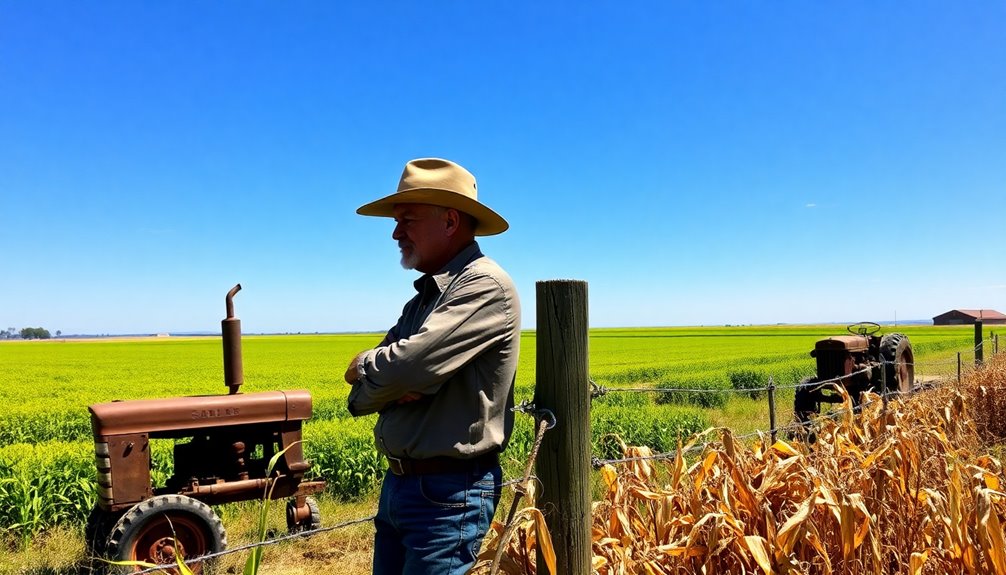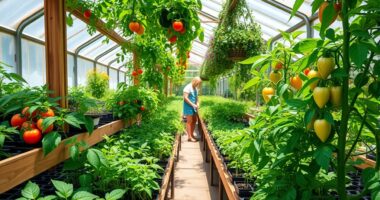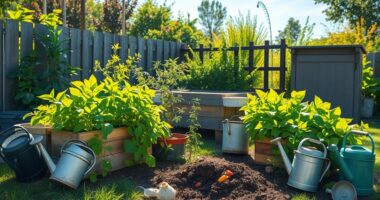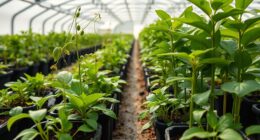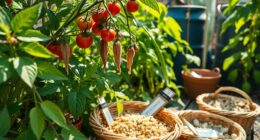Farmers in Kansas and Missouri often sidestep climate change discussions due to fears of conflict and potential harm to their business relationships. The topic feels overly politicized, leading many to avoid expressing their views. Economic concerns also weigh heavily, as they deal with rising operational costs and reduced productivity due to extreme weather and altered growing conditions. This reluctance creates a cycle of silence among farmers. There's much more to explore about their perspectives and challenges.
Key Takeaways
- Farmers in Kansas and Missouri often avoid discussing climate change due to its politicized nature and fear of conflict within their communities.
- Economic concerns, including the potential impact on business relationships, discourage farmers from engaging in climate change conversations.
- Many farmers experience direct climate impacts, such as extreme weather and shifting growing seasons, yet feel isolated in their views.
- A reluctance to address climate change stems from a complex mix of skepticism, economic pressures, and the desire to maintain community harmony.
- Open dialogue about climate change is hindered by the "spiral of silence," where farmers remain silent due to perceived minority views.
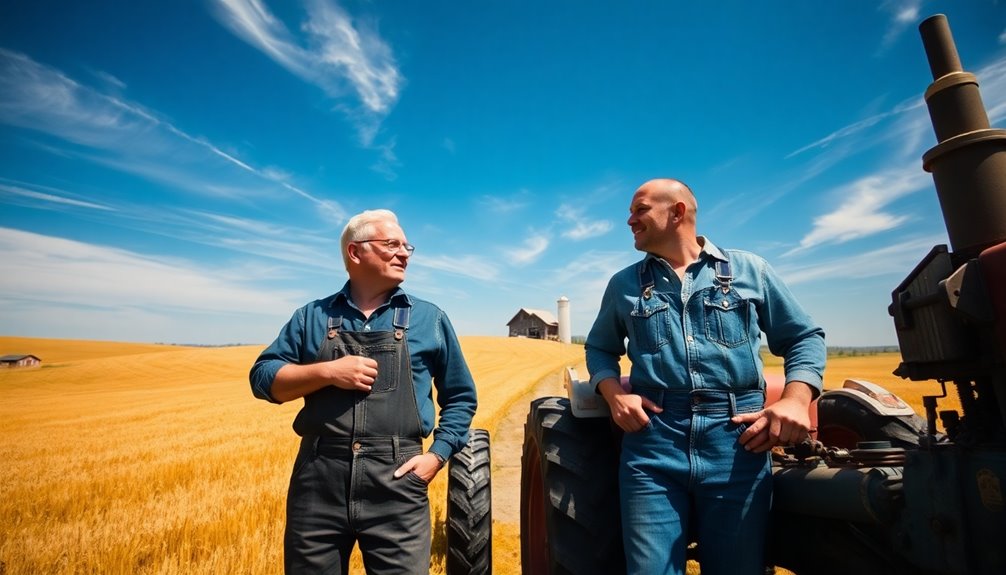
As climate change increasingly impacts farming in Kansas and Missouri, many farmers find themselves hesitant to engage in discussions about it. You might notice that the topic often feels too politicized, making it uncomfortable to broach in casual conversation or at community gatherings. The fear of conflict or negative reactions from others can be quite overwhelming, causing you to sidestep the issue altogether.
Many farmers hesitate to discuss climate change due to its politicized nature and fear of conflict in their communities.
Economic concerns further complicate this reluctance. You probably worry that discussing climate change could harm your business relationships or create rifts in your community. Expressing a belief in climate change might lead to judgment or even ostracism, which is something most farmers want to avoid. This is where the "spiral of silence" theory comes into play. If you feel your views on climate change are in the minority, you might choose to remain silent, leading to an ongoing cycle of avoidance.
Meanwhile, climate change continues to affect your farming operations directly. Increased extreme weather events and shifting growing seasons are becoming the norm. You might find that rising temperatures and changing precipitation patterns are impacting your crop yields and livestock productivity. In fact, the agriculture sector accounted for 10.5% of U.S. greenhouse gas emissions in 2022, highlighting the industry's dual role in the climate crisis.
It's not just about the weather; soil fertility is also compromised due to erosion and altered conditions. With warmer temperatures come increased pest and disease pressures, making it even harder to maintain a successful agricultural operation.
These challenges add to the economic strain you already face. Higher operational costs and reduced productivity can create an uphill battle for many farmers. While your perspectives on climate change may vary—from full belief to skepticism—it's clear that the issue is complex and multifaceted.
Frequently Asked Questions
What Specific Climate Change Issues Affect Farmers in Kansas and Missouri?
Farmers in Kansas and Missouri face several climate change issues that impact their operations.
You're likely dealing with extreme weather events, like droughts and heat waves, which hurt crop yields. Rising temperatures can significantly reduce your farm income, while shifting growing seasons force you to adapt your planting schedules.
Soil degradation from heavy rainfall erodes land fertility, making it harder to maintain productivity and predict crop yields, ultimately threatening your livelihood.
How Do Farmers in These States Adapt to Changing Weather Patterns?
Farmers in Kansas and Missouri adapt to changing weather patterns by diversifying crops, incorporating drought-resistant varieties like sorghum and millet.
They practice no-till farming to improve soil health and water retention, and they implement efficient irrigation systems to conserve water.
Additionally, using cover crops helps prevent soil erosion and enhances soil fertility.
Engaging in conservation programs provides support and resources, empowering you to embrace sustainable practices that increase resilience against climate challenges.
What Role Do Local Governments Play in Climate Change Discussions?
Imagine a garden where every plant thrives under careful nurturing. Local governments act as the gardeners of climate change discussions. They shape policies through land use and community engagement, ensuring that climate actions resonate with local needs.
Are There Financial Incentives for Farmers Implementing Sustainable Practices?
Yes, there are several financial incentives for you as a farmer implementing sustainable practices.
Government programs offer grants, low-interest loans, and tax incentives to help cover costs. Conservation programs provide financial assistance for practices like cover cropping and conservation tillage.
Additionally, you can benefit from programs like the Environmental Quality Incentives Program (EQIP) which supports various conservation efforts.
These incentives can ease your financial burden while promoting environmentally friendly farming methods.
How Do Farmers' Associations Influence Climate Policy Decisions in the Region?
Farmers' associations play a significant role in shaping climate policy decisions in your region. They represent agricultural interests and lobby for policies that promote sustainable practices.
While they might avoid direct climate change debates, they advocate for initiatives like crop diversification and water conservation.
Conclusion
In the heartland of America, where the soil meets the sky, it's clear farmers in Kansas and Missouri are choosing to sidestep climate change discussions. But can they really afford to ignore the looming storm? By turning a blind eye, they risk more than just their crops; they jeopardize the future of agriculture itself. It's time to realize that embracing these conversations isn't just a choice—it's a necessity for survival in an ever-changing climate.
